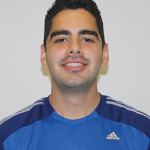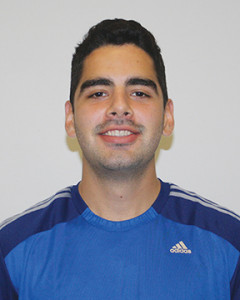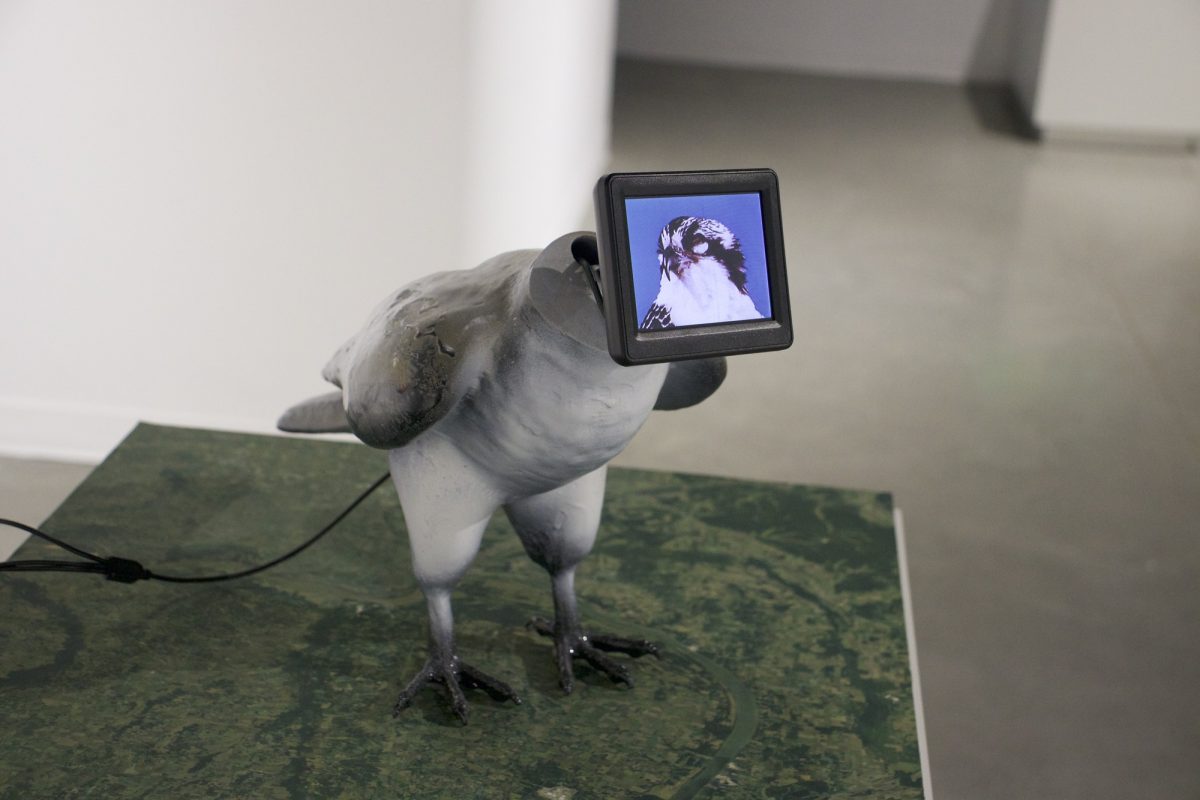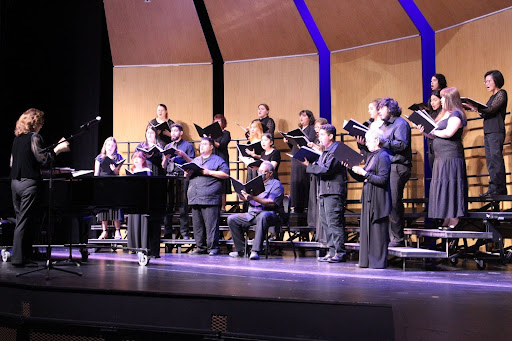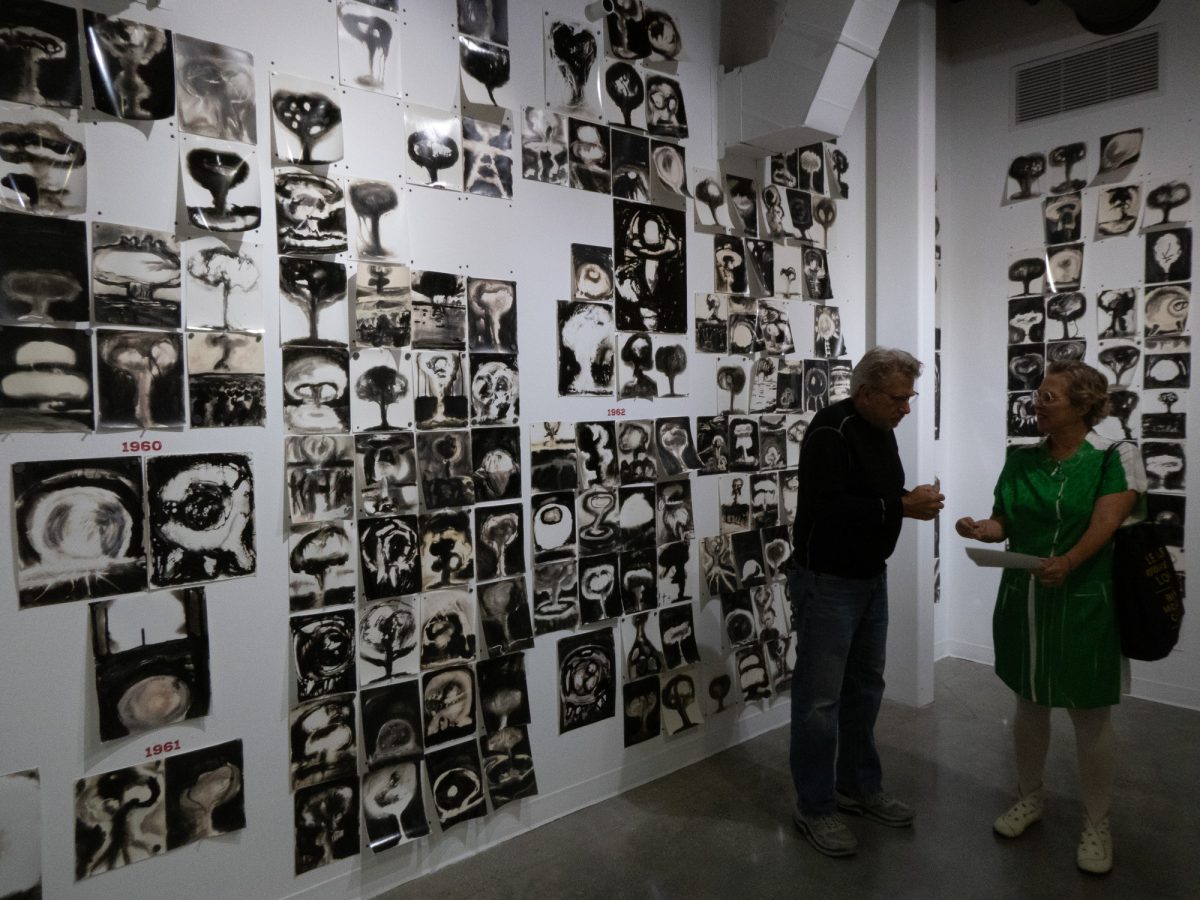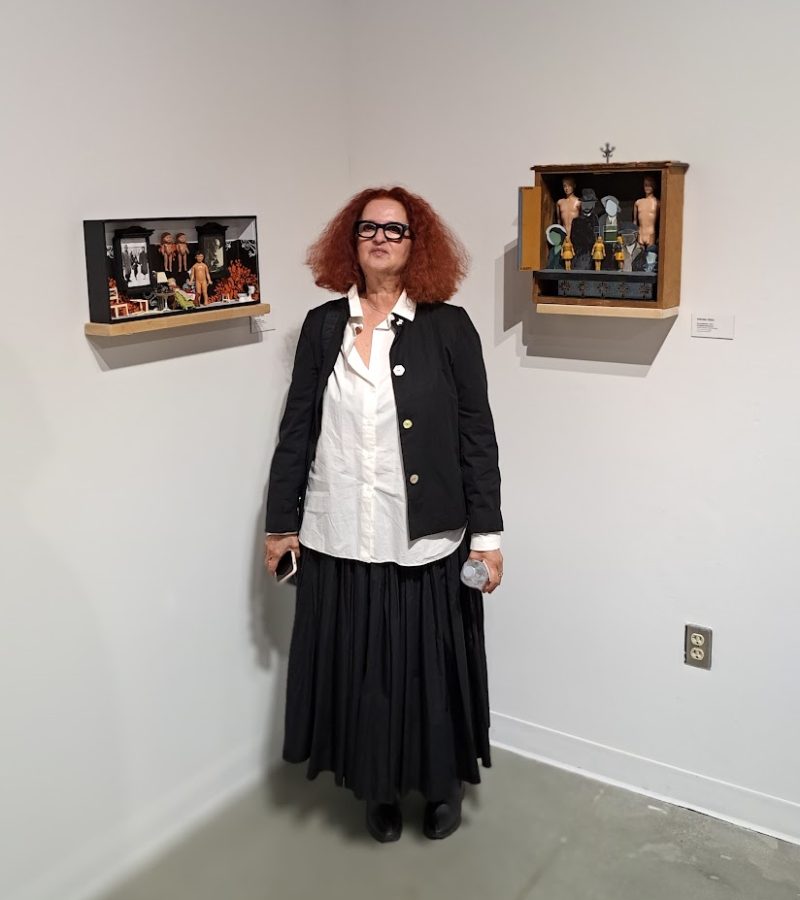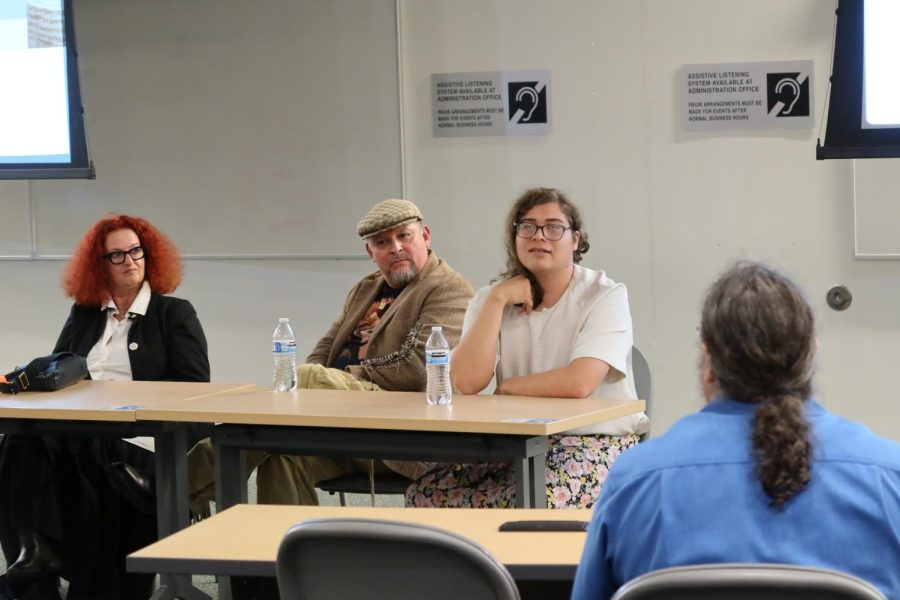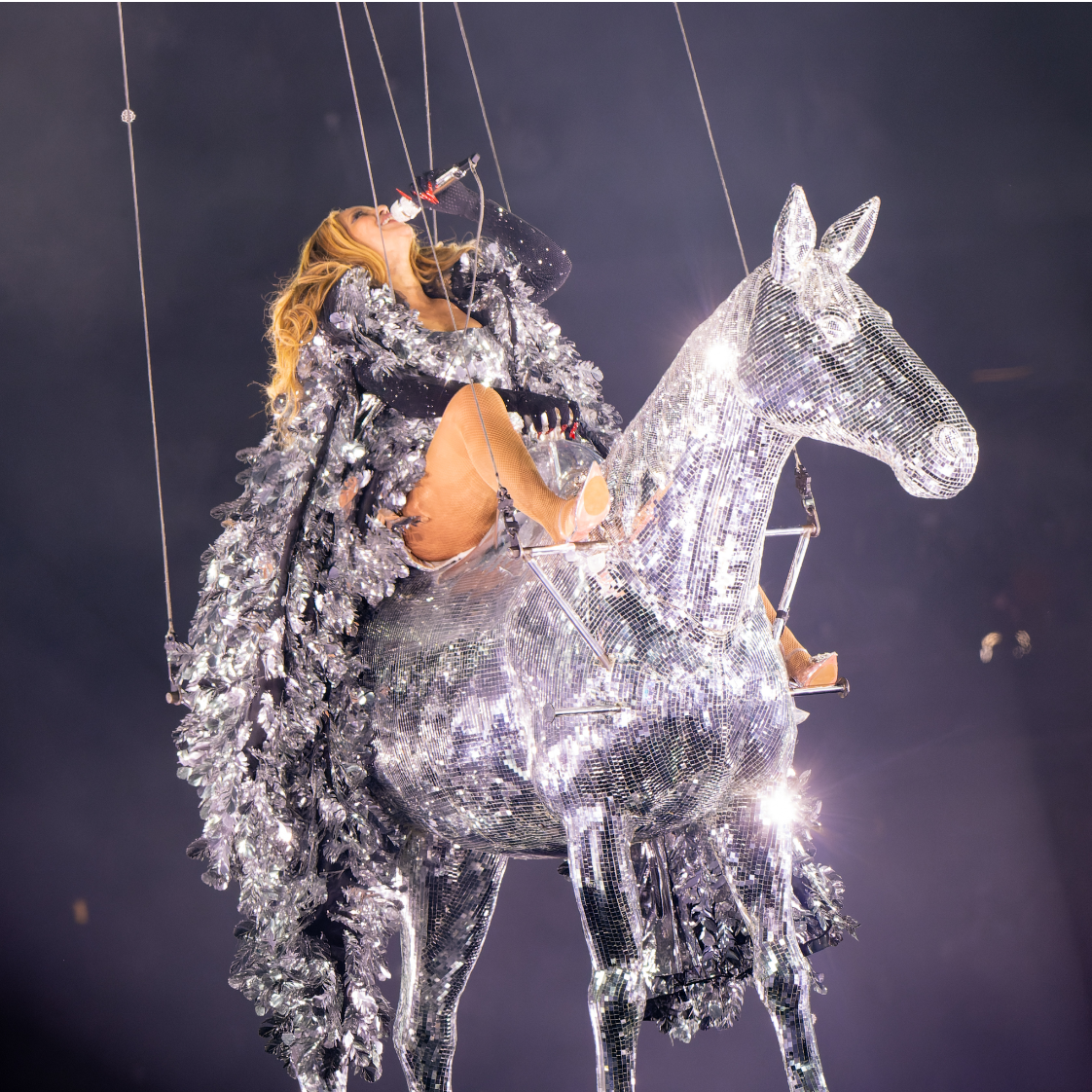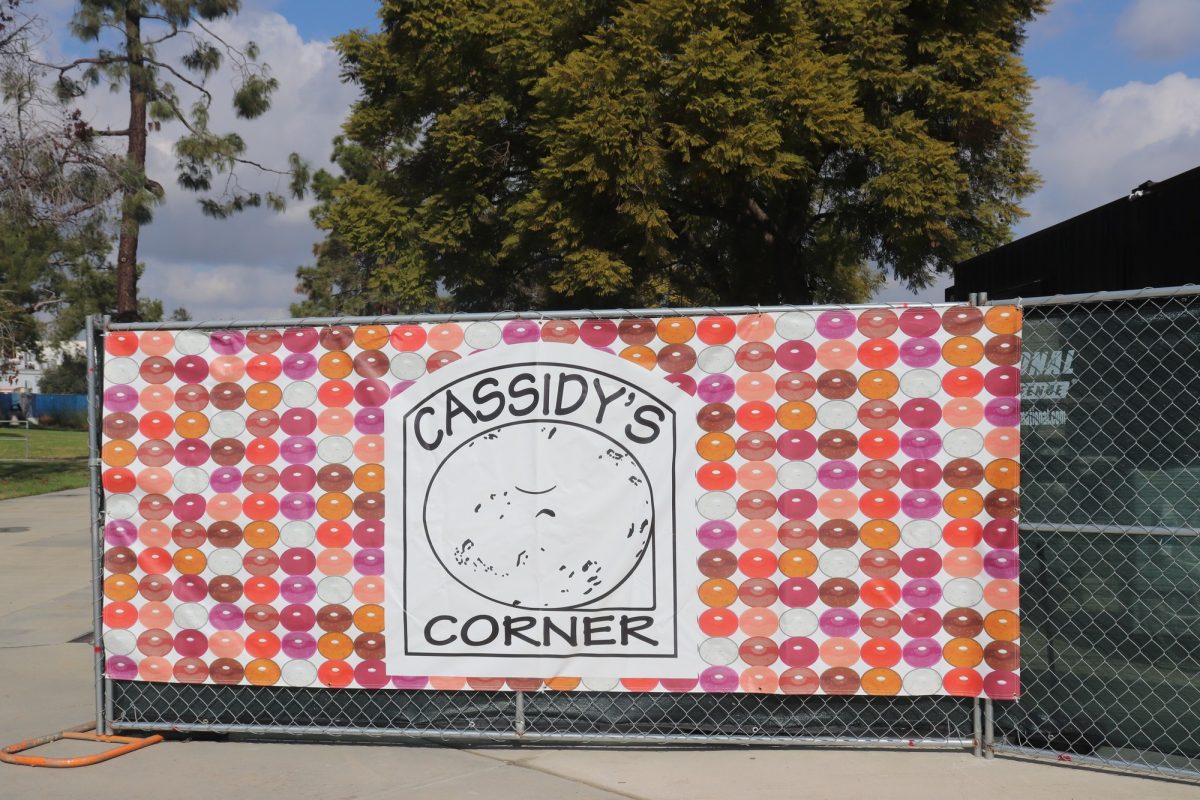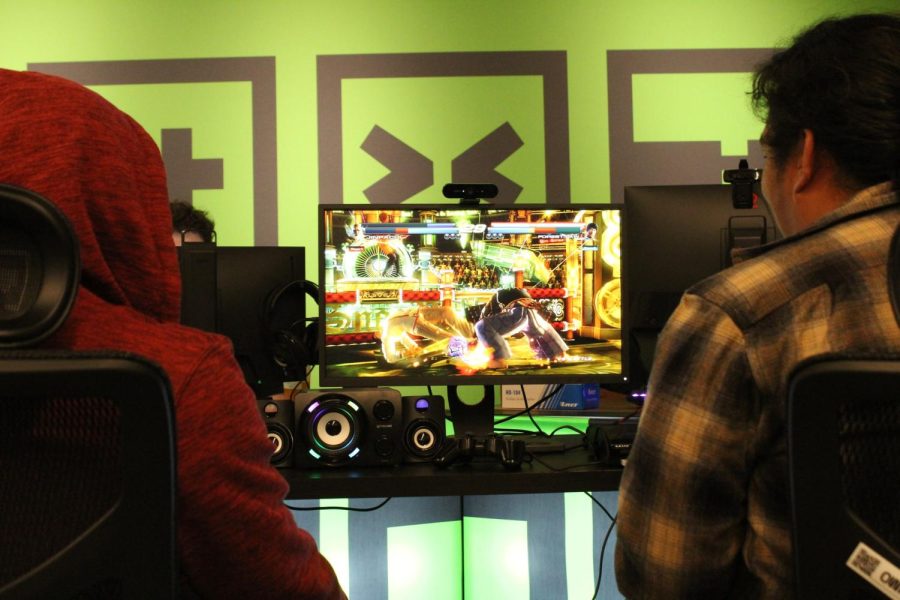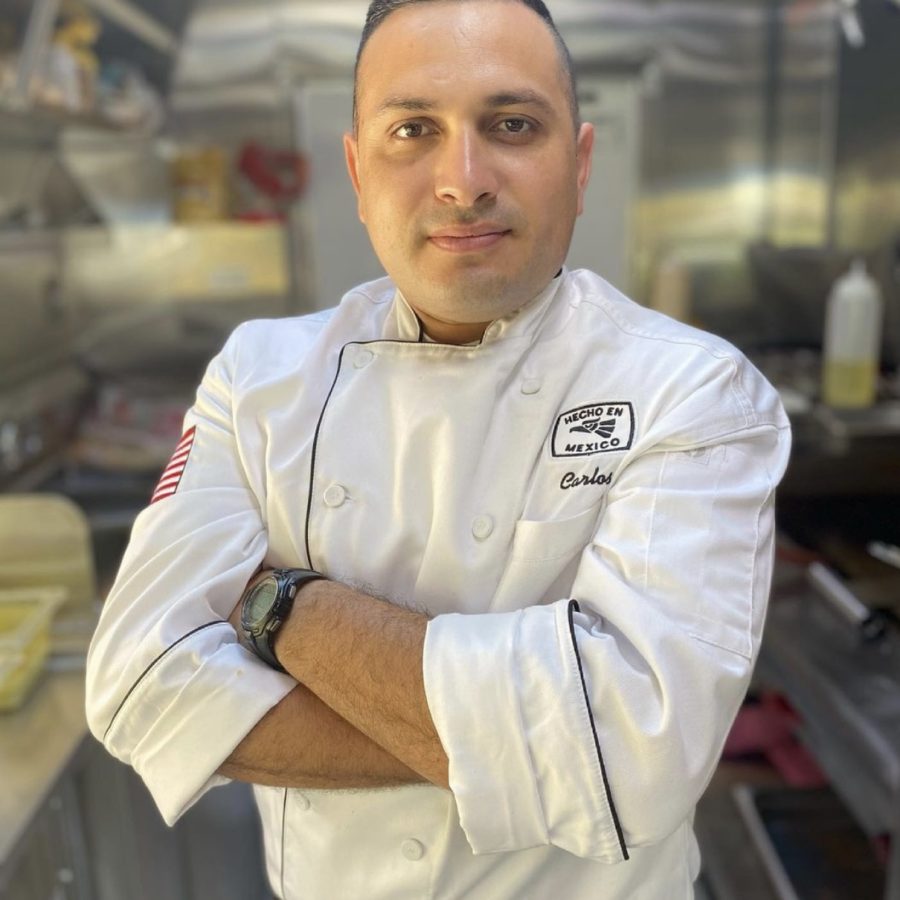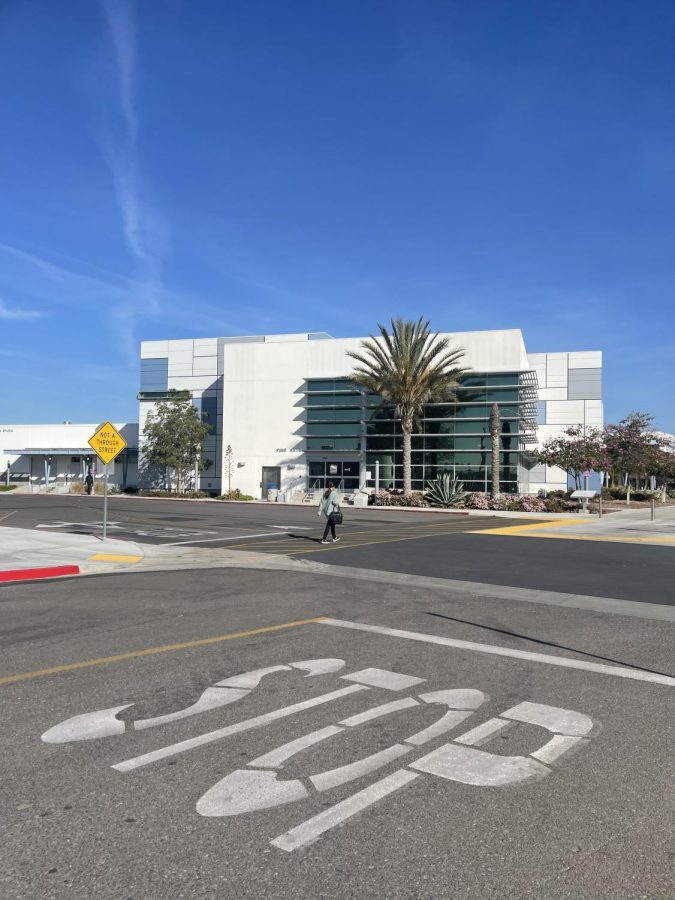The culinary arts program at Cerritos College teaches students how to perform in a professional kitchen by putting them through a kitchen experience of their own.
The program runs a food service that allows the public to purchase food that is created by the students.
Head Chef Mike Perini explains that first semester students have to take safety and sanitation to make sure that they are allowed to be in the kitchen.
“It’s a Los Angeles County law that all cooks are food service aid certified, before they are allowed to touch food that is served to the public, ” he said. “All of our students are food service aid manager certified, which by law only one person in an organization has to be, but 100 percent of our kitchen it manager certified so it’s a higher level of standard.”
Chef Ernest Lew is a professor for the program and works with the intermediate students that are moving up from beginner. He stresses how important it is for the cooks to know their sanitation practices.
“At home you can stick your fingers in the pot, stick it in your mouth and no one cares. It’s very casual, it’s very informal,” Lew said. “You do that in a professional kitchen and it’s a health violation, because you have now contaminated whatever you are making with your saliva.”
Another class that the students have to take is professional cooking, because that is where they are taught to develop their taste and flavors.
“We are the only school in the United States that cooks without recipes. We train the student on how to cook without a formula,” Perini said. “We try to develop their mouth, because with the generations that we are getting, all they know is fat and salt as a flavor, because that’s all fast food has to offer.”
[soundcloud url=”https://api.soundcloud.com/tracks/150334804″ params=”auto_play=false&hide_related=false&visual=true” width=”100%” height=”300″ iframe=”true” /]
Perini got rid of using recipes because he realized that there was little to nothing when it came to retaining the knowledge at the end of the day for the students.
“It’s like putting blinders on a horse and they would go around, get all the ingredients, put it together, follow the procedures and they would come up with a nice product,” he said. “At the end of the day we would do a recap and then I would ask them what did they make and they would say, ‘I don’t know.’ They wouldn’t know what they did all day long.”
The intermediate and advanced courses of the program have five stations that the students cycle through every three week during the semester. Perini feels like the rotation is starting from scratch each time, but it’s important to the students development.
“It’s like opening all new businesses every three weeks, because as soon as I get them good at whatever station they are at, I switch them to something else, so we start all over again,” he said. “Instead of teaching an 18 week class, it’s more like they are taking five, three week classes.”
Ana Flores is a student of the program and enjoys the freedom that the students have because they can create their own things instead of following recipes.
“Sometimes we don’t have one vegetable, so we can create another thing,” Flores said. “We can experiment doing stuff instead of just going to lecture. Yeah they are talking about it, but when you do labor it’s fun.”
Flores was just hired by the The Ritz-Carlton and is one of the top students in the program according to Perini.
“I’m really nervous, because I worked at Quizno’s and it’s not really a restaurant and to go over to the high class now, it’s just wow,” she said.
While the kitchen is part of their education, Lew feels that the environment that they provide is close to what it’s like in the industry.
“We try to make it as realistic as possible, while still maintaining an educational environment. We are more concerned with the students learning, than we are about running a business,” he said. “Obviously there are somethings that we can’t do. We don’t beat people or yell at them, but you do hear some horror stories about that in the industry.”


